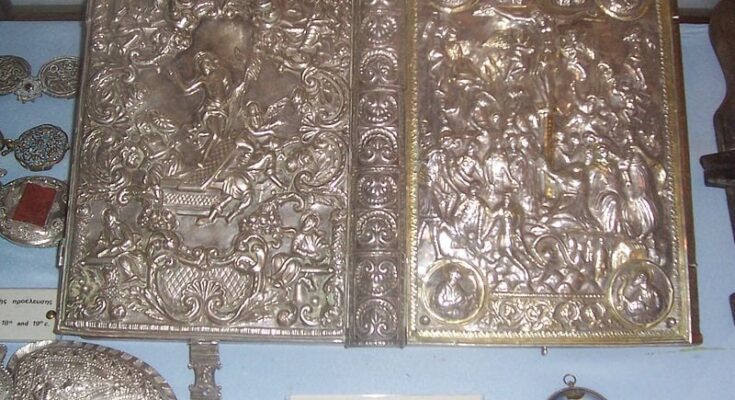
The Bible talks about the origins of many nations. For example, it provides some information about the origin of the Greeks. However, does the Bible reveal any information at all about the origin of the Etruscans?
This was a powerful nation of ancient Italy whose origins are disputed. Does the Bible have any bearing on this debate?
The Bible’s Table of Nations
The Bible provides detailed information on the origins of only a few nations. Examples include the Israelites, the Edomites, and the Midianites. However, it alludes to the origins of essentially every nation on earth in a section called the Table of Nations.
We find this in chapter 10 of the Book of Genesis. This provides a long list of the sons, grandsons, and great-grandsons of Noah. His three sons were Ham, Shem, and Japheth.
Japheth is recorded as having a son named Javan. This is the same name that the Bible uses to denote the Greeks. Javan, in turn, had a son named Elishah, comparable to the Greek ethnonym ‘Aioleis.’ Thus, based simply on the names, it is evident that Javan was the forefather of the Greeks.
The origin of Etruscans in the Table of Nations in the Bible
With this in mind, what can the Table of Nations in the Bible reveal about the origin of the Etruscans? Although the Bible never directly mentions this nation, the Table of Nations does include a figure whose name seems to be related to the name of the Etruscans.
The figure in question is Tiras. His name is clearly reminiscent of ‘Tyrsenoi.’ This was the ethnonym that the Greeks applied to the Etruscans. This later evolved into ‘Tyrhenoi,’ from which we get the form ‘Tyrrhenians.’
Nonetheless, the name was originally spelt with an ‘s.’ Bronze Age Egyptian records speak of a nation called the Teresh as one of the Sea Peoples. Many scholars believe that the Teresh were the Tyrsenoi (that is, the Etruscans).
Therefore, it is very likely that according to the Bible, the origin of the Etruscans lies with this figure named Tiras.
Where did Tiras settle?
The likely identification of Tiras as the ancestor of the Etruscans is a useful piece of information. It may well have a bearing on the issue of the historicity of the legendary migration of the Etruscans from Anatolia. Some scholars believe that this migration really did occur, while others believe that the Etruscans were always native to Italy.
What do we know about Tiras? He was the son of Japheth and thus the brother of Gomer, Magog, Madai, Javan, Tubal, and Meshech. The first two of these, Gomer and Magog, are associated with nations such as the Cimmerians, the Scythians, and nations further into Europe, such as the Germanic tribes.
Javan is associated with the Greeks, as we saw previously, and many of the islands of the Aegean, as well as Iberia. Tubal and Meshech are both associated with Anatolia. The only figure who is definitely associated with a more easterly direction is Madai, connected to the Medes and the Persians.
On the basis of this information, what can we say about Tiras? Well, we can see that most of his brothers are associated with nations in Europe or close to the Black Sea. Hence, purely on the basis of this limited information, it would make sense to connect Tiras with somewhere in this area too.
The origin of the Etruscans according to the Bible and tradition
Interestingly, ancient traditions connected Tiras with the Thracians. For example, we find this connection in the writings of Jewish historian Josephus in the first century AD. And according to legend, the forefather of the Thracians was a figure named Thrax. This is quite close to the name ‘Tiras.’
What bearing does this assertion from tradition, based on the Bible, have on the question of the origin of the Etruscans? Well, the Thracians lived just across the Bosporus from northwest Anatolia. As other investigations show, the Etruscans were allegedly in northwest Anatolia before they migrated to Italy.
If the Thracians were indeed descendants of Tiras as ancient tradition claimed, then this would strongly support placing other descendants of Tiras (the Etruscans) in that same general area. This indicates that the Etruscans did originally live in northwest Anatolia, not Italy, which is far from Thrace.
Hence, while the Bible does not comment directly on the origin of the Etruscans, it does provide us with some helpful information. This information, ambiguous though it is, favors the ancient idea that the Etruscans originated in northwest Anatolia.



